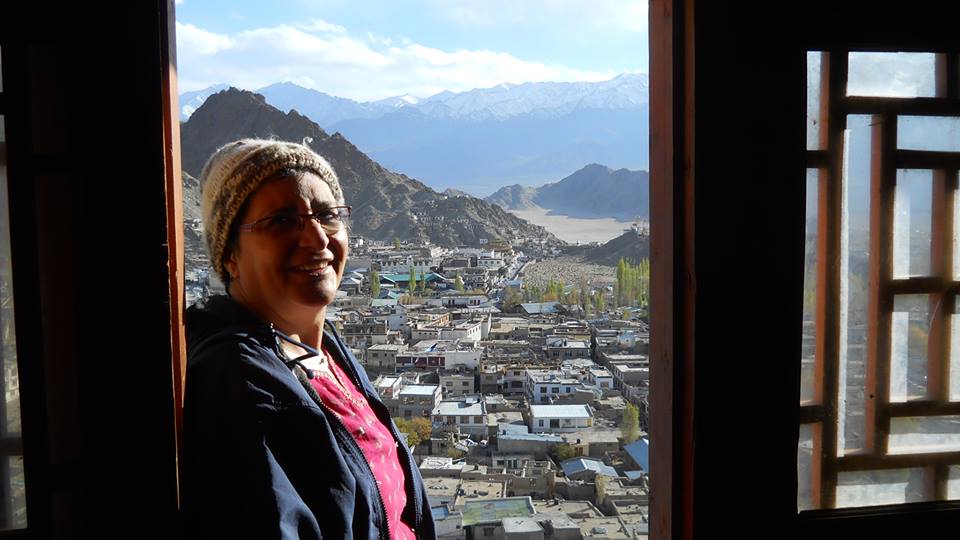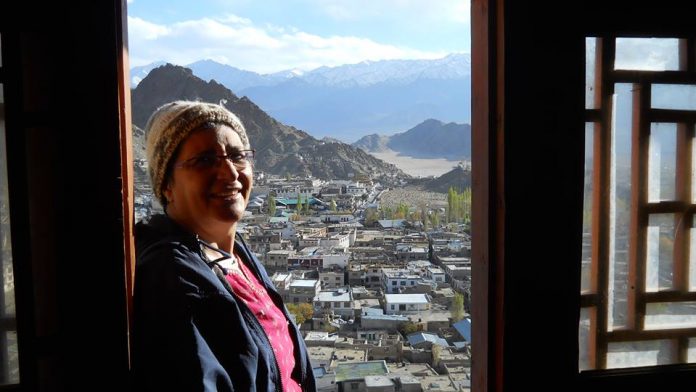By Raqib Hameed Naik, TwoCircles.net
The narratives around conflict zones often present the perspectives, sufferings and threats to life around the men of a society, since more often than not it is the men who are in the direct act of violence and resistance. But as many would point out, events like enforced disappearances, custodial killings, encounters and torture impact the women of conflict zones equally, if not more. While the role and the impact of sustained violence in various regions across the world has been both delved into, it is an issue that needs more attention. And Freny Manecksha, a journalist based out of Mumbai, is doing precisely that with her efforts in Kashmir.

To document such narratives of women’s and children suffering Freny wrote a book, “Behold, I Shine” which moves beyond male voices and focuses instead on what the struggle means for the Valley’s women and children; women whose husbands remain untraceable; children whose mothers are half-widows; people who confronted the wrath of ‘Ikhwanis’, or the scrutiny of men in uniform, and what it means to stand up to it all.
Talking about the origins of the book, Manecksha says, “I had written a chapter in an anthology on Kashmir entitled ‘Of Occupation and Resistance’, edited by Fahad Shah and on the basis of that I was commissioned by Rupa Publications to do a book. I had already written two articles for Himal looking at women and militarisation, and also sexual violence. So when they asked me to do a book I decided I wanted to write on the narratives of women and children in Kashmir.”
The book also brings to focus the resilience of the Valley’s women and children, and the role of activists like Parveena Ahangar and Anjum Zamrud Habib.
“I felt it was important to include these narratives where they not only suffered direct violence but also had to bear what Shazia Yousuf, a female reporter, aptly referred to as ‘hidden damage’. This was about the impact of enforced disappearances, and what happens to half widows. It was about the hardships women faced when the husband/sons went missing and they had to head the household. It was about what militarisation does to women. Of how they suffer when the men are picked up and the houses burnt down,” she
said.
Manecksha observed that how women have begun huge struggles for justice, even as they continue to be seen just as passive victims. The book also explores the oppression faced by the women because of the patriarchal nature of society.
“Patriarchy exists everywhere but when it is compounded by occupation it becomes like a double zulm (Oppression). For example, there are stories of women who suffered sexual violence by armed forces and later had to bear the stigma of society. There were women who became half-widows and as single women faced many socio-economic problems which they tried to surmount. All this makes their accounts very important,” Manecksha said. When asked why she chose Kashmir as the subject she wanted to write on, Manecksha recalled how on her first trip to Kashmir in 2010, she realised that the national media tended to cover Kashmir’s issues in an extremely biased manner.
“Few people look at the history of Kashmir and its turbulent past. If we go back to issues dating back to pre-independence days. Kashmiris have unresolved political aspirations and we have to acknowledge that,” she adds. She feels concerned to see the Kashmir issue being seen through the Islamophobic lens by the “nationalist” media, especially the electronic media.
“Today they have demonised Kashmiris to an appalling extent. People are actually endorsing the use of pellet guns that blind children. This is unconscionable,” she adds.
When asked if she faced any backlash due to her writings, she says, “Kashmir is a very contentious subject and one continues to be dismayed at the way so few people speak up and condemn the atrocities perpetrated by the state. I have not received any threats or intimidation but yes, people even in close circles brand you anti national and what not. But, nowadays, I guess so many of us are anti national if we question the state on anything even its economic policies.”
She further said that Journalism is all about telling a story truthfully and accurately, “I happen to enjoy telling the stories of the marginalised communities and those that challenge the state narratives. “I am motivated because the Kashmiris themselves have so persistently and courageously wanted to share their narratives or their struggles for justice. When I was recording the voices of the Kashmiri women I was struck by the way so many could argue so eloquently and passionately. They are lively story tellers and I am gratified because many women readers in various states of India have resonated with them,”
Manecksha says. She is looking forward to writing more on Kashmir along with working on how people’s spaces are impacted by land acquisition, whether in Chhattisgarh or in other urban cities.


